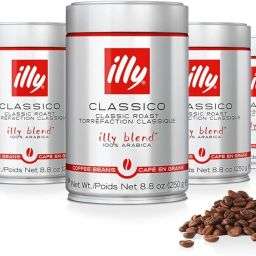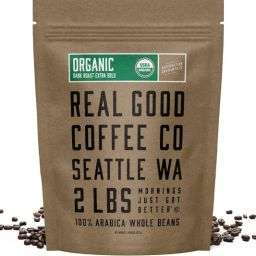
The global coffee market has established itself as a cornerstone of the international economy, fueled by an insatiable demand for this ubiquitous beverage. Coffee, one of the world’s most beloved drinks, has seen a consistent rise in consumption, reflecting its integral role in various cultures and societies.
This ever-increasing trend underscores the significant opportunities within the wholesale coffee business, a sector that caters to a broad spectrum of clients ranging from local cafes to international retailers, offering them the essential product they need to meet consumer demand.
Identifying Your Target Audience
Success in the wholesale coffee business begins with a clear identification of your target audience. This audience typically spans a diverse range, including retailers looking to stock their shelves with premium coffee, coffee shops seeking unique blends to attract customers, and direct consumers interested in purchasing large quantities for personal use. Each segment has distinct preferences and requirements, necessitating a tailored approach to product offerings.
For instance, retailers may prioritize competitive pricing and product variety, while coffee shops might focus on the uniqueness and quality of the blend. Understanding these nuances is crucial in developing a product strategy that meets the specific needs of each customer segment.
Market Research and Analysis
The foundation of any successful wholesale coffee venture lies in thorough market research and analysis. Recognizing and understanding market demand not only informs product development but also aids in positioning your offerings to align with customer expectations.
Tools such as consumer surveys, market trend reports, and competitor analysis provide valuable insights into what coffee products are in demand, enabling wholesalers to adjust their strategies accordingly. This research is instrumental in identifying emerging trends, such as the growing preference for sustainable and ethically sourced coffee, allowing wholesalers to adapt and cater to these evolving consumer preferences.
Effective market research is a continuous process, essential for staying ahead in the competitive landscape of the coffee wholesale business.
Setting Up Your Wholesale Coffee Business
Finding the Right Suppliers
The cornerstone of a successful wholesale coffee business is the ability to source high-quality coffee beans. Selecting the right suppliers involves evaluating criteria such as the quality of the beans, ethical sourcing practices, and reliability of supply.
Building strong, mutually beneficial relationships with suppliers is also crucial, as it ensures a steady flow of quality beans and can provide leverage in negotiating better prices or terms.
Ensuring Product Quality
Maintaining high product quality is essential for retaining customers and building a reputable brand. This involves implementing strict quality control measures throughout the sourcing and production processes. Regular testing and monitoring for consistency in flavor, aroma, and other key quality parameters are fundamental practices.
Additionally, fostering close relationships with suppliers to ensure they adhere to your quality standards can significantly contribute to the overall quality of the final product.
Branding and Packaging
Creating a compelling brand identity is vital in differentiating your product in the competitive wholesale coffee market. Your brand should resonate with your target audience, reflecting the quality and values of your coffee. Packaging plays a crucial role in this, serving not just as a protective container for your product, but also as a key marketing tool.
Effective packaging design should be visually appealing, informative, and aligned with your brand identity, while also considering practical aspects like freshness preservation and ease of transport.
Pricing Strategies for Wholesale
Developing competitive pricing structures that appeal to both retailers and end consumers, while still ensuring profitability, is a delicate balance. It requires a deep understanding of market pricing, cost of goods sold, and the margins required to sustain the business.
Wholesale pricing strategies must account for the costs of sourcing, production, packaging, and distribution, alongside a reasonable profit margin. Regular market analysis can help in adjusting prices to stay competitive and responsive to market changes.
Regulatory Compliance and Certifications
Compliance with local and international laws is non-negotiable in the coffee wholesale business. This includes adhering to health and safety regulations, tax laws, and import/export restrictions. Additionally, obtaining relevant certifications, such as organic, fair trade, or direct trade, can enhance your brand’s appeal by meeting the ethical and quality expectations of your customers.
Staying informed and up-to-date with legal requirements and industry certifications is essential for operating a legitimate and trustworthy wholesale coffee business.
E-commerce Strategies
In today’s digital age, establishing an online store is a critical step for wholesale coffee businesses seeking to expand their reach. An intuitive, well-designed e-commerce platform allows for showcasing your product catalog, providing detailed product information, and facilitating easy order placements.
Additionally, leveraging online sales channels, such as B2B marketplaces or specialized food and beverage platforms, can significantly increase visibility and access to potential customers.
Digital Marketing
Effective digital marketing strategies, including search engine optimization (SEO) and social media engagement, are essential for driving traffic to your online store and building brand awareness. Utilizing SEO techniques ensures your website ranks higher in search engine results, making it easier for potential customers to find you.
Social media platforms offer valuable opportunities to engage with your audience, share content about your products, and build a community around your brand. Email marketing campaigns targeted at your existing customer base or interested prospects can promote new products, share company news, and offer special promotions.
Networking and Partnerships
Participation in industry events and trade shows is invaluable for networking with peers, meeting potential customers, and showcasing your products. These opportunities can also lead to forming strategic partnerships with other businesses, such as coffee shops or retail chains, expanding your distribution channels and customer base.
Entering New Markets
Expanding into new geographic or demographic markets requires careful planning and strategy. This includes understanding the new market’s preferences, regulatory requirements, and competitive landscape. Overcoming challenges such as cultural differences and logistical hurdles is crucial for successful market entry.
Final Thoughts
Successfully selling coffee beans wholesale requires a comprehensive approach that includes understanding your market, sourcing high-quality beans, effective branding, and leveraging digital platforms.
Expanding your reach through networking, partnerships, and strategic market entry are essential for growth. This guide offers a foundation for establishing and expanding your wholesale coffee business, encouraging further exploration and innovation in this thriving industry.









